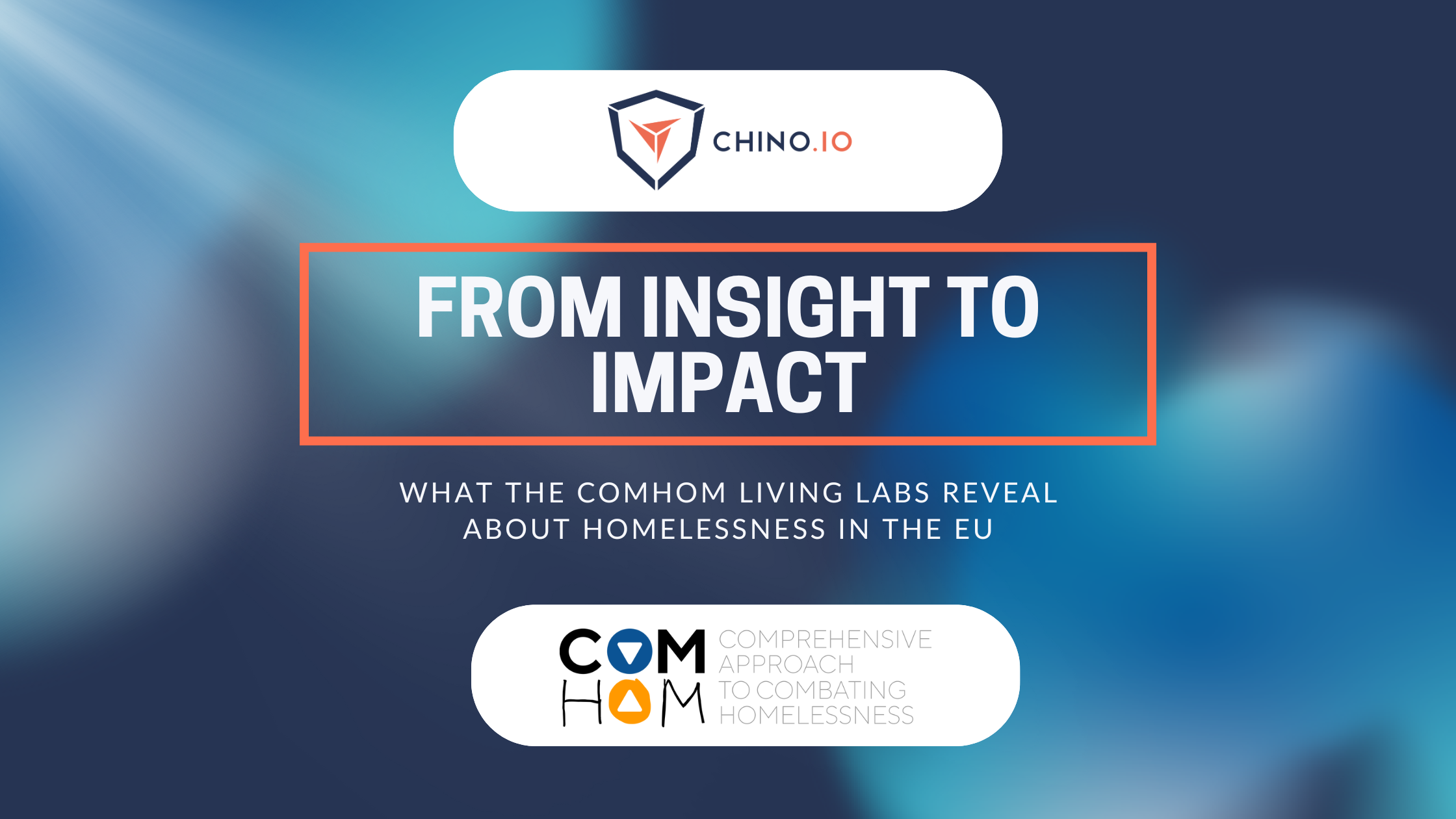Between May and July 2025, the COMHOM project completed the first phase of its Living Lab (LL) activities. This is a major step in rethinking how Europe addresses homelessness - by testing solutions in real contexts and co-creating with those most affected.
This first phase focused on one critical goal: creating a shared, stakeholder-informed definition of homelessness across five EU countries - Finland, Greece, Ireland, Portugal, and Spain. By involving communities directly, COMHOM is setting the stage for digital and policy innovations that actually work in practice.
Why defining the problem matters
Tackling homelessness isn’t just about building more shelters or drafting new policies.
The challenge is often deeper:
- Inconsistent definitions of homelessness across countries.
- Fragmented data systems
- Limited coordination between sectors
At the start, project partners reflected on these barriers, framing a common understanding of the “problem space.” National Living Labs then built on this with input from the people who know homelessness best: those with lived experience, social care providers, and policymakers.
Chino.io supported this process by ensuring ethics and data protection principles were respected throughout. Because building trust is key - especially when sensitive data and vulnerable communities are involved.
What the Living Labs revealed
Across all five countries, common issues emerged:
- Inconsistent definitions of homelessness → making it hard to compare data or design fair policies.
- Fragmented, outdated digital systems → slowing down service delivery and coordination.
- Limited use of data in policymaking → decisions not grounded in evidence.
- Barriers to service access → especially for “hidden homelessness” groups who are often excluded.
Despite national differences, stakeholders agreed on shared needs:
✅ Inclusive and harmonised definitions of homelessness
✅ Interoperable and up-to-date data systems
✅ Strategies focused on prevention, not just crisis response
Some consultations faced delays due to national ethics approval processes, particularly in countries without established review boards. Still, the perspectives gathered so far are invaluable in shaping the next steps.
From insights to action: What’s next
The findings from this first phase will directly guide the co-design of digital and policy solutions in COMHOM. These solutions won’t be theoretical - they will be tested in practice through implementation and validation.
The ultimate goal?
- More inclusive definitions of homelessness
- Evidence-based policymaking
- Smarter, more coordinated digital tools
- Stronger collaboration between social care, health, and housing services
All of this is aimed at creating fairer, more effective, and prevention-oriented responses to homelessness across Europe.
Who makes it happen
Value for Health CoLAB (VOH CoLAB) leads Work Package 2 on Social Innovation and Co-creation, managing the setup and monitoring of the Living Labs. Their expertise ensures meaningful stakeholder engagement throughout the process.
But this is truly a collective effort. All COMHOM consortium partners are deeply involved across the problem, solution, and deployment phases - bringing their knowledge and perspectives to make sure the Living Labs deliver actionable results.
The project is co-funded by the European Social Fund Plus (ESF+) of the European Union. 🇪🇺
How Chino.io helped COMHOM: Ensuring data protection and ethical approval
When working with sensitive information in the COMHOM Living Labs, data protection and ethics are at the core of the process. To manage this responsibly, the project adopted a Joint Controllership Agreement (JCA).
This document defines how data is collected within the Living Labs and how it is securely shared with VOH. Practical safeguards, such as pseudonymisation and strict access controls, are applied to reduce risks and protect participants’ identities. Together, these measures form a clear and transparent data management flow, ensuring information is handled with the highest standards of security and compliance.
Another critical aspect of this work is ethical approval. In collaboration with VOH, the COMHOM team supports the preparation and submission of applications to ethics committees in different countries. Each national context has its own requirements and timelines, which sometimes creates delays. By combining expertise, the consortium ensures that all Living Lab activities respect participants’ rights, follow local laws, and meet international standards for ethical research.
This two-fold approach—robust data governance and thorough ethical oversight—not only safeguards participants but also strengthens the credibility and impact of the project’s outcomes.
Final Thoughts
The COMHOM Living Labs are more than just consultations. They are spaces where people with lived experience, practitioners, and policymakers meet to reshape how Europe understands and tackles homelessness.
By putting co-creation, ethics, and real-world testing at the center, COMHOM is paving the way for digital and policy solutions that are inclusive, sustainable, and impactful.
The first insights are in - and they’re already pointing toward a more connected, evidence-informed approach to one of Europe’s most pressing social challenges.
👉 Stay tuned as COMHOM moves into the next phase: co-designing and testing solutions that will redefine how homelessness is addressed across Europe. From December, we will start working with 25 organisations all over the EU on the practical development and implementation of the platform. You can find more information about this phase here.
Make sure to subscribe to the COMHOM newsletter – a new tool to stay connected with the project and its activities.
Each edition will include:
- Project news and updates – key milestones and results
- Living Labs – insights from our innovation hubs across Europe
- Events – recaps of past sessions and information about upcoming opportunities
- Upcoming milestones – what is next for COMHOM and the consortium
You can subscribe here: https://www.comhom.eu/contact/
How (Chino.io can help you)
When sensitive data are being processed a DPIA is always needed. Hence, the key point is to understand whether you collect or not sensitive data.
Once you have correctly understood what type of data you collect, we at Chino.io can help you tackle Data Protection Impact Assessments thanks to our user documentation. We can also help you assess the different risks and describe the different security measures envisaged to address those risks.
If you found this article useful, explore our other resources on GDPR, NIS2, and C5 compliance to strengthen your digital projects.
Streamline Your Compliance With Chino.io Today
Discover our
Templates
Read our Latest Industry Insights
Discover insights from our expert writers.





